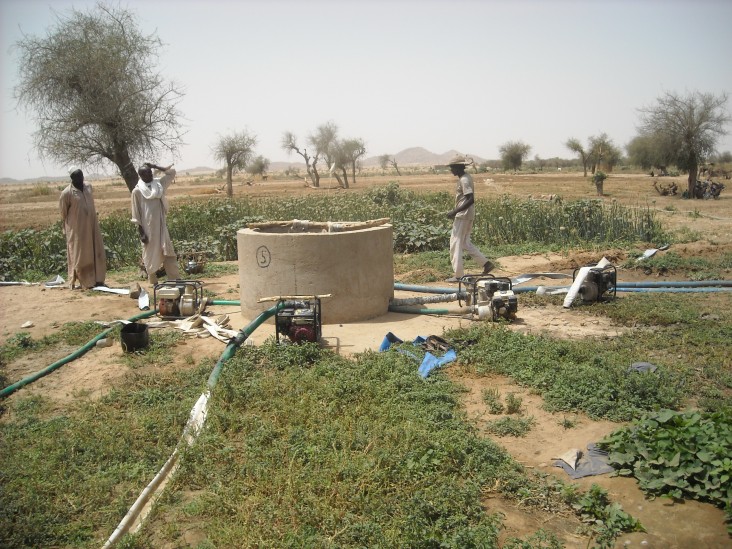
As a landlocked country that experiences recurrent drought and inflows of refugees, Chad faces severe food insecurity. Approximately 44 percent of the population in Chad lacks access to potable water, and there are hundreds of thousands of refugees from Sudan and Central African Republic dwelling in already vulnerable host communities.
Since 2008, USAID has partnered with Africare to carry out a development food assistance program that among other efforts focuses on improving access to clean drinking water. Greater water access has led to increased knowledge and demand for proper chlorination practices, resulting in the disinfection of over 11 million liters of water. Eighty one percent of program beneficiaries have adopted proper water hygiene behaviors, including hand washing and using latrines, and village residents have noticed significant positive changes, such as decreased water-borne diseases and reduced levels of malnutrition and child mortality rates. Families from Mourdaba village, located 45 kilometers north of Abeche, have reported noticeably reduced cases of diarrhea since the program began.
Abdelmadjid Ali, 41, and a father of five children, is a member of the water management committee at Mourdaba village. “There was no community organization dealing with water management before the project," he recalled. "Villagers consumed dirty and unclean water and this exposed them to all kind of diseases including diarrhea and cholera.”
To increase access to clean water in Chad, the project has constructed 113 wells since 2008 throughout Batha and Ouaddai, two of the most vulnerable, food insecure regions. Built in mostly high population density areas, the wells now benefit almost 35,000 people throughout the targeted regions.
Community members were directly invested in the projects, as they helped with some of the well construction in exchange for food through a Food-for-Work program. USAID partner Africare also brought in local experts to handle the technical aspects of well construction.
To make sure communities could manage the new potable wells and ensure proper water quality for the long-term, village members came together to create water point management committees. Through monthly sensitization sessions, committees learned how to raise awareness about water hygiene, sanitation around water points, and purification of drinking water, including treatment of water with chlorine. Since the start of the program, 84 villages have established functional water committees. This new method of managing water systems has been a community effort, as households contribute 20 cents each month to maintain the wells.
Village members have observed improvements in overall health since the program began. “Since 2009, with the construction of wells in the village, training and sensitization, villagers are drinking clean water, and diseases linked to water are observed less and less in the village,” Ali notes.
In fact, Ali observed that his village was spared from the 2011 outbreak of cholera and attributes this to the improved water management efforts. Water committees are now planning for the future, so they can continue disinfecting water and managing the new water system without further assistance from Africare or USAID.
The 2008-2014 Chad Food Security Initiative program targets approximately 64,000 beneficiaries in the Ouaddai and Batha regions of Chad and aims to reduce vulnerability to food insecurity through improving community health and strengthening livelihood systems.







Comment
Make a general inquiry or suggest an improvement.